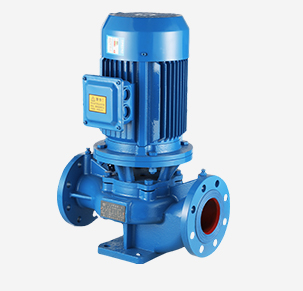English
- Afrikaans
- Albanian
- Amharic
- Arabic
- Armenian
- Azerbaijani
- Basque
- Belarusian
- Bengali
- Bosnian
- Bulgarian
- Catalan
- Cebuano
- Corsican
- Croatian
- Czech
- Danish
- Dutch
- English
- Esperanto
- Estonian
- Finnish
- French
- Frisian
- Galician
- Georgian
- German
- Greek
- Gujarati
- Haitian Creole
- hausa
- hawaiian
- Hebrew
- Hindi
- Miao
- Hungarian
- Icelandic
- igbo
- Indonesian
- irish
- Italian
- Japanese
- Javanese
- Kannada
- kazakh
- Khmer
- Rwandese
- Korean
- Kurdish
- Kyrgyz
- Lao
- Latin
- Latvian
- Lithuanian
- Luxembourgish
- Macedonian
- Malgashi
- Malay
- Malayalam
- Maltese
- Maori
- Marathi
- Mongolian
- Myanmar
- Nepali
- Norwegian
- Norwegian
- Occitan
- Pashto
- Persian
- Polish
- Portuguese
- Punjabi
- Romanian
- Russian
- Samoan
- Scottish Gaelic
- Serbian
- Sesotho
- Shona
- Sindhi
- Sinhala
- Slovak
- Slovenian
- Somali
- Spanish
- Sundanese
- Swahili
- Swedish
- Tagalog
- Tajik
- Tamil
- Tatar
- Telugu
- Thai
- Turkish
- Turkmen
- Ukrainian
- Urdu
- Uighur
- Uzbek
- Vietnamese
- Welsh
- Bantu
- Yiddish
- Yoruba
- Zulu
Telephone: +86 13120555503
Email: frank@cypump.com
Aug . 14, 2024 06:16 Back to list
Durable Chemical Transfer Pumps Designed for High Resistance in Various Industrial Applications
Chemical Resistant Transfer Pumps An Essential Tool for Safe Liquid Handling
In various industries, the safe and efficient transfer of chemicals is a critical process. Whether in pharmaceuticals, petrochemicals, food and beverage, or waste management, the need for reliable equipment is paramount to ensuring safety, efficiency, and compliance with regulations. One of the most essential tools in this regard is the chemical resistant transfer pump.
Chemical resistant transfer pumps are specifically designed to handle the movement of aggressive liquids without compromising performance or safety. Unlike standard pumps, these specialized devices are constructed from materials that can withstand the corrosive effects of a wide range of chemicals, including acids, bases, solvents, and other hazardous fluids. This unique feature is crucial for protecting both the equipment and the environment.
Design and Materials
The design of chemical resistant transfer pumps incorporates high-quality materials such as polypropylene, polyethylene, stainless steel, and specialized alloys, which are selected based on the specific chemicals they will encounter. For instance, polypropylene is widely used for its resistance to a variety of acids and bases, making it ideal for applications involving harsh chemicals. Similarly, Teflon seals can be employed to prevent leaks while maintaining integrity in contact with aggressive substances.
In addition to material selection, these pumps often feature reinforced components that enhance durability and minimize the risk of failure. Such robust designs are particularly important in industries where downtime can lead to significant financial losses or environmental hazards.
Applications
chemical resistant transfer pump

Chemical resistant transfer pumps find applications across a multitude of sectors. In the pharmaceutical industry, they are utilized for transferring corrosive chemicals or solvents required in the manufacturing process. For example, when handling active pharmaceutical ingredients (APIs), these pumps ensure that the compounds remain uncontaminated and that the transfer process adheres to stringent health and safety regulations.
In the petrochemical sector, these pumps are indispensable for transporting crude oil, fuel oils, and other petroleum products. Their ability to handle harsh chemicals without degrading or leaking is vital to maintaining operational efficiency and safety standards.
Moreover, in the food and beverage industry, chemical resistant pumps are used to transfer cleaning solutions and additives safely, ensuring that the potential for cross-contamination is minimized. Even in wastewater management, these pumps are essential for moving treated and untreated liquids without risking exposure to caustic materials.
Safety and Compliance
The importance of safety cannot be overstated when dealing with hazardous materials. Chemical resistant transfer pumps are engineered with safety features such as leak detection systems, explosion-proof motors, and ergonomic designs to facilitate ease of use and reduce the risk of accidents. Compliance with industry standards, such as those established by the Occupational Safety and Health Administration (OSHA) and the Environmental Protection Agency (EPA), is crucial for any business handling chemicals. Using certified chemical resistant pumps ensures that organizations meet these regulations, helping to avoid hefty fines and safeguarding worker health.
Conclusion
In summary, chemical resistant transfer pumps are an integral part of various industries that require the safe transfer of aggressive liquids. Their specialized design and robust materials enable them to handle a wide range of corrosive substances while ensuring compliance with stringent safety regulations. As industries continue to evolve and face new challenges concerning chemical handling, the role of these pumps will only become more vital in ensuring operational safety and efficiency. Investing in high-quality chemical resistant transfer pumps is not just a business decision; it is a commitment to safety, reliability, and environmental stewardship.
-
ISG Series Vertical Pipeline Pump - Chi Yuan Pumps Co., LTD.|High Efficiency, Energy Saving, Low Noise
NewsJul.30,2025
-
ISG Series Vertical Pipeline Pump- Chi Yuan Pumps|High Efficiency&Low Noise
NewsJul.30,2025
-
ISG Series Vertical Pipeline Pump-Chi Yuan Pumps Co., LTD.|High Efficiency&Energy Conservation
NewsJul.30,2025
-
ISG Series Vertical Pipeline Pump - Chi Yuan Pumps Co., LTD.|Advanced Hydraulic Design&Energy-Efficient Solutions
NewsJul.30,2025
-
ISG Series Vertical Pipeline Pump - Chi Yuan Pumps Co., LTD.
NewsJul.30,2025
-
ISG Series Vertical Pipeline Pump - Chi Yuan Pumps Co., LTD.|energy-efficient fluid handling&industrial durability
NewsJul.30,2025










